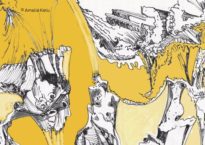Übungen in Komplexität und Kontingenz von Politikentscheidung: das Ordentliche Gesetzgebungsverfahren der EU als digitales Planspiel
EU-Gesetzgebung ist schon häufig zum Gegenstand von Planspielen gemacht worden. Zumeist wird darin jedoch nur der Part des Europäischen Parlaments oder des Rats der EU abgebildet, die Verfahren werden außerdem stark stilisiert und Auseinandersetzungen auf ideologische oder interstaatliche Konflikte reduziert. Während diese Planspiele ein stringentes Spielerlebnis ermöglichen, verfestigen sie gleichzeitig die vereinfachte mediale Darstellung von EU Politik. Dieser Beitrag, präsentiert von Amelie Kutter auf dem DVWP Kongress 2021, reflektiert Erfahrungen mit einem Planspiel zur ersten Lesung des von der EU Kommission 2019 vorgeschlagenen „Neuen Pakts für Asyl und Migration“, das in zwei aufeinanderfolgenden Semestern in der Einführungsvorlesung ‚Introduction to the politics of the European Union‘ im interdisziplinären und internationalisierten Masterstudiengang Europa-Studien an der Europa-Universität Viadrina über Zoom durchgeführt wurde. Ziel war weniger, politikwissenschaftliches Spezialwissen zu vermitteln als Studierende dazu zu befähigen, die Komplexität und Kontingenz von laufenden EU-Verhandlungen zur durchdringen.
